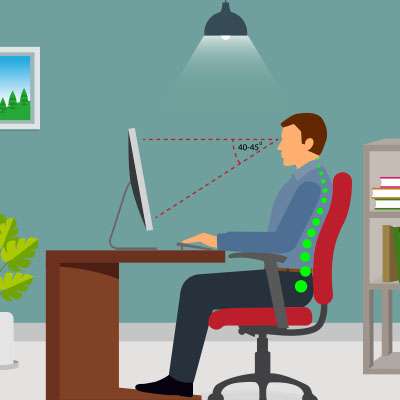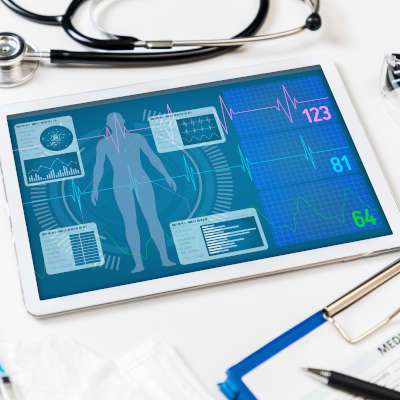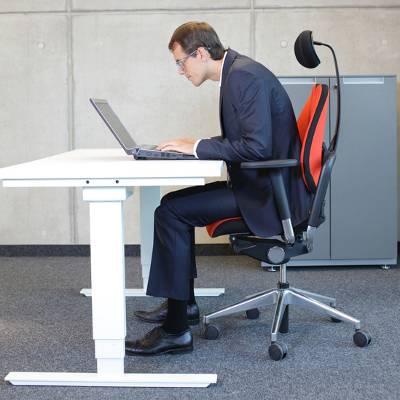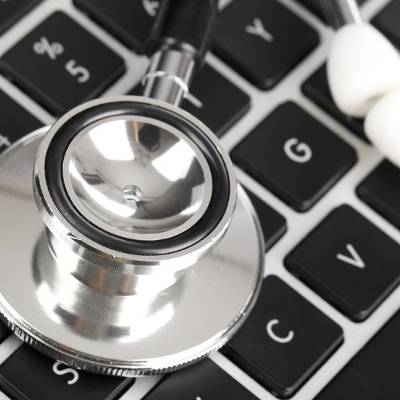The strain on people’s bodies isn’t always taken seriously enough when someone works at a computer. Still, many official studies suggest that desk jobs can have a radical and rather negative effect on the health of individuals. One common ailment is what is called “tech neck.” Tech neck is a term that describes neck pain and damage stemming from looking down at computers or mobile devices for prolonged periods. To avoid tech neck, you can follow these helpful tips listed below.
Macro Systems Blog
Healthcare is a heated issue regardless of where you live. As a result you’d think that the industry would be one of the first to implement new information technology. Alas, the healthcare industry has sometimes lagged behind other industries on the deployment of new IT tools. One technology that is being used in the development of new IT tools for healthcare is blockchain. How blockchain technology is being utilized and how it can change the face of healthcare going forward is listed below.
It’s critical to note that all parties involved in patient care (including the patient) benefit from the Electronic Health Record (EHR). These systems are now fundamental to a successful health maintenance system. As more technology is created that could be integrated into the EHR platform, there is a stalemate keeping EHR technology from being what it could be.
Many states’ stay-at-home orders that were implemented to mitigate the spread of the COVID-19 virus are now lapsing all over the U.S. As a result, business owners are re-opening their doors to a great deal of uncertainty. Listed below is a guide to help the business owner understand that, even though you’ve finally been given the go-ahead, you have a responsibility to keep your staff and customers safe.
With COVID-19 resulting in people staying at home, many telecommunications companies have started to make concessions to make life easier for their customers. Whether it is used for entertainment, work, or communication, Internet access is imperative right now, and so ISPs and cell carriers are taking steps to help facilitate this.
The office is a location where work gets accomplished, but it’s also known as a sedentary lifestyle. Workplace wellness programs may be an $8 billion industry, but the effectiveness of these programs has yet to be determined. Below we'll take a look at what kind of office wellness programs might work for your business.
The office can be a stressful environment, and sitting still for so long can be hard to handle in terms of both physical and mental wellbeing. Some employees can experience health problems or depression, dissatisfaction, and generally negative emotions. Listed below are a few tips to help your staff avoid the feeling of being unsatisfied by their static jobs.
Sometimes even the most hard-working employee need a break for the sake of their mental well-being. Similar to the devices we all utilize every day, our brains need a chance to charge back up. Without a chance to de-stress and decompress, we are all susceptible to burnout. Listed below are a few methods you and your employees can use to revitalize or refresh yourselves.
Working at a desk is a fairly inescapable for the modern office worker. The trouble with sitting at a desk for long intervals is that it causes physical issues, especially if the workspace isn’t properly set up. Fortunately, you don’t have to invest in specialized equipment; it’s fairly simple to establish best practices that will ensure employee comfort and productivity.
Virtual reality is quickly becoming a smash hit with many industries, but one of the most incredible and unexplainable phenomenons has to do with VR’s use in the medical sector. While it’s been thought that VR can be used to help paraplegic patients to walk again using brain-controlled robotic limbs, recent innovations have shown that this has the ability to go above and beyond its expectations.
It goes without saying that having to rely on a pacemaker isn’t an ideal circumstance for anyone, even considering that the device allows the patient to continue living a fulfilling life. This is why a particular discovery of a European-based research team becomes a shade or two darker: the team has concluded that it’s possible for a novice to send life-threatening signals to the device.
 American healthcare organizations must store and exchange patient data in ways that comply with the HIPAA law, or else face hefty fines. One mental health service in Alaska recently learned this lesson the hard way after being hit with a $150,000 fine. Is your healthcare organization’s IT infrastructure 100 percent HIPAA compliant?
American healthcare organizations must store and exchange patient data in ways that comply with the HIPAA law, or else face hefty fines. One mental health service in Alaska recently learned this lesson the hard way after being hit with a $150,000 fine. Is your healthcare organization’s IT infrastructure 100 percent HIPAA compliant?
 This subject isn’t very interesting outside of hospital administrators… or for hospital administrators, but there’s no denying that healthcare is one of the most important industries in our society today; and one that is having a technology overhaul at present. The influx of cheaper and more powerful technology is surely going to be a driving force for healthcare in the 21st century. Under the Health Information Technology for Economic and Clinical Health Act (HITECH), the United States government has followed the lead of other Western nations in forcing entities to upgrade their healthcare practice’s information technology for the betterment of patients, insurers, and health care providers.
This subject isn’t very interesting outside of hospital administrators… or for hospital administrators, but there’s no denying that healthcare is one of the most important industries in our society today; and one that is having a technology overhaul at present. The influx of cheaper and more powerful technology is surely going to be a driving force for healthcare in the 21st century. Under the Health Information Technology for Economic and Clinical Health Act (HITECH), the United States government has followed the lead of other Western nations in forcing entities to upgrade their healthcare practice’s information technology for the betterment of patients, insurers, and health care providers.
 Google's not just good for scouring the Internet for cat videos and funny memes. Google X, with a new project called Baseline, is now looking to study the makeup of the human body, which they are hoping will be able to prevent disease and foster a more healthy existence for individuals around the world.
Google's not just good for scouring the Internet for cat videos and funny memes. Google X, with a new project called Baseline, is now looking to study the makeup of the human body, which they are hoping will be able to prevent disease and foster a more healthy existence for individuals around the world.
 Everything seems to be going your way for once. The office is really coming together to make that big business deal you've been trying so hard to get for months. You shake the CEO's hand and seal the deal. You stroll out of the office with a spring in your step and get in the taxi to head home for the night. But the cab driver is playing loud music - so loud that it just sounds like screeching in your ear. And then you wake up, your alarm clock ringing at max volume. It's 7:00am, and it's time to go back to the office that feels like a prison, and your employees the inmates.
Everything seems to be going your way for once. The office is really coming together to make that big business deal you've been trying so hard to get for months. You shake the CEO's hand and seal the deal. You stroll out of the office with a spring in your step and get in the taxi to head home for the night. But the cab driver is playing loud music - so loud that it just sounds like screeching in your ear. And then you wake up, your alarm clock ringing at max volume. It's 7:00am, and it's time to go back to the office that feels like a prison, and your employees the inmates.
 We live in a time where information technology has touched every facet of life. It would be a fair bet to assume that, at this point, it is more commonplace than a trend. We are inundated with Internet-connected computer systems in every aspect of life. We use automated tellers to do our banking, most major retailers have automated checkouts to supplement the work staff they have in place, and even your Grandma uses Gmail. With this technology saturated into the culture, there are many pragmatic uses that are just now being discovered and implemented. Nowhere is this more true than in the health care industry.
We live in a time where information technology has touched every facet of life. It would be a fair bet to assume that, at this point, it is more commonplace than a trend. We are inundated with Internet-connected computer systems in every aspect of life. We use automated tellers to do our banking, most major retailers have automated checkouts to supplement the work staff they have in place, and even your Grandma uses Gmail. With this technology saturated into the culture, there are many pragmatic uses that are just now being discovered and implemented. Nowhere is this more true than in the health care industry.

















